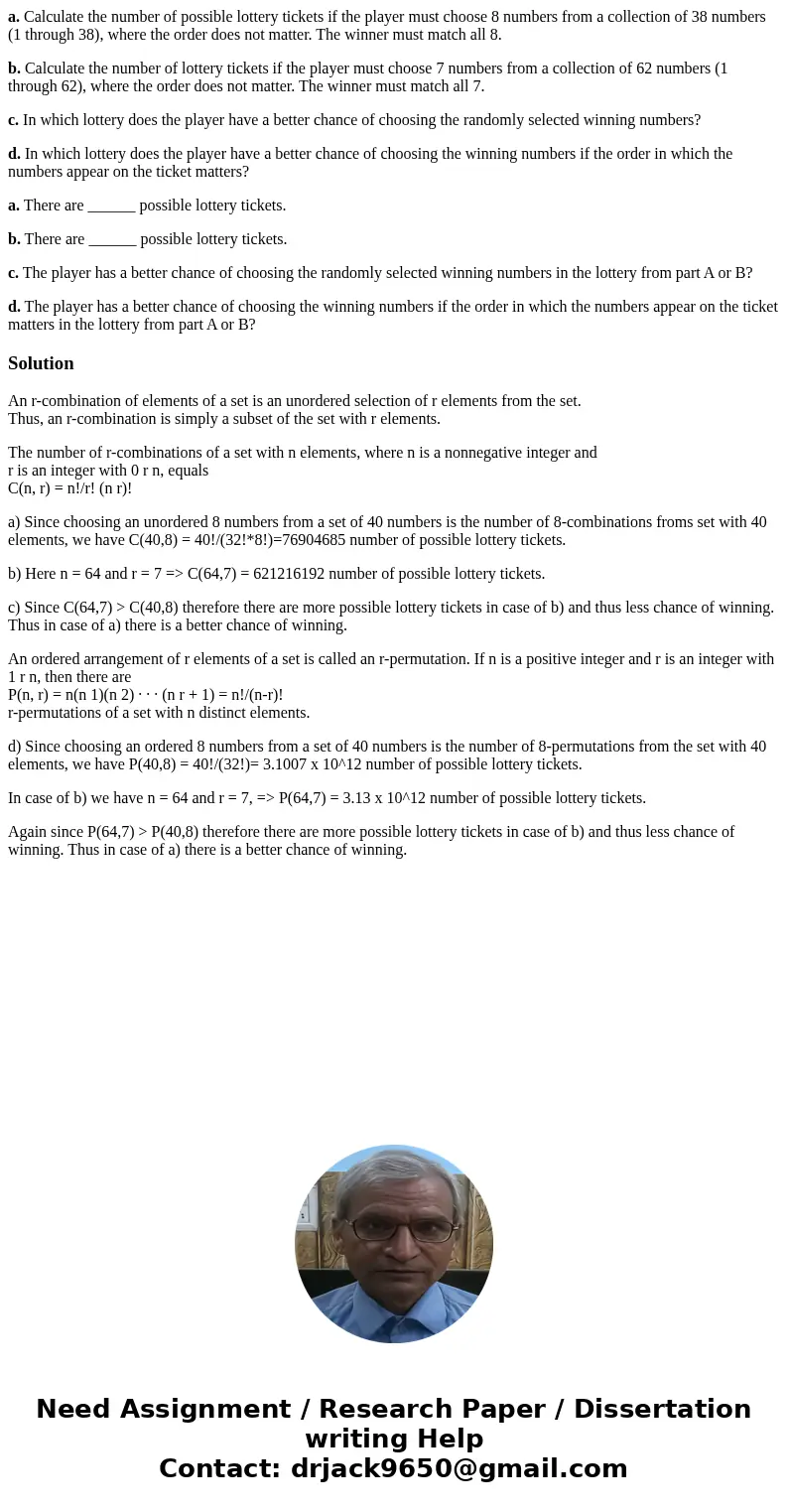a Calculate the number of possible lottery tickets if the pl
a. Calculate the number of possible lottery tickets if the player must choose 8 numbers from a collection of 38 numbers (1 through 38), where the order does not matter. The winner must match all 8.
b. Calculate the number of lottery tickets if the player must choose 7 numbers from a collection of 62 numbers (1 through 62), where the order does not matter. The winner must match all 7.
c. In which lottery does the player have a better chance of choosing the randomly selected winning numbers?
d. In which lottery does the player have a better chance of choosing the winning numbers if the order in which the numbers appear on the ticket matters?
a. There are ______ possible lottery tickets.
b. There are ______ possible lottery tickets.
c. The player has a better chance of choosing the randomly selected winning numbers in the lottery from part A or B?
d. The player has a better chance of choosing the winning numbers if the order in which the numbers appear on the ticket matters in the lottery from part A or B?
Solution
An r-combination of elements of a set is an unordered selection of r elements from the set.
Thus, an r-combination is simply a subset of the set with r elements.
The number of r-combinations of a set with n elements, where n is a nonnegative integer and
r is an integer with 0 r n, equals
C(n, r) = n!/r! (n r)!
a) Since choosing an unordered 8 numbers from a set of 40 numbers is the number of 8-combinations froms set with 40 elements, we have C(40,8) = 40!/(32!*8!)=76904685 number of possible lottery tickets.
b) Here n = 64 and r = 7 => C(64,7) = 621216192 number of possible lottery tickets.
c) Since C(64,7) > C(40,8) therefore there are more possible lottery tickets in case of b) and thus less chance of winning. Thus in case of a) there is a better chance of winning.
An ordered arrangement of r elements of a set is called an r-permutation. If n is a positive integer and r is an integer with 1 r n, then there are
P(n, r) = n(n 1)(n 2) · · · (n r + 1) = n!/(n-r)!
r-permutations of a set with n distinct elements.
d) Since choosing an ordered 8 numbers from a set of 40 numbers is the number of 8-permutations from the set with 40 elements, we have P(40,8) = 40!/(32!)= 3.1007 x 10^12 number of possible lottery tickets.
In case of b) we have n = 64 and r = 7, => P(64,7) = 3.13 x 10^12 number of possible lottery tickets.
Again since P(64,7) > P(40,8) therefore there are more possible lottery tickets in case of b) and thus less chance of winning. Thus in case of a) there is a better chance of winning.

 Homework Sourse
Homework Sourse